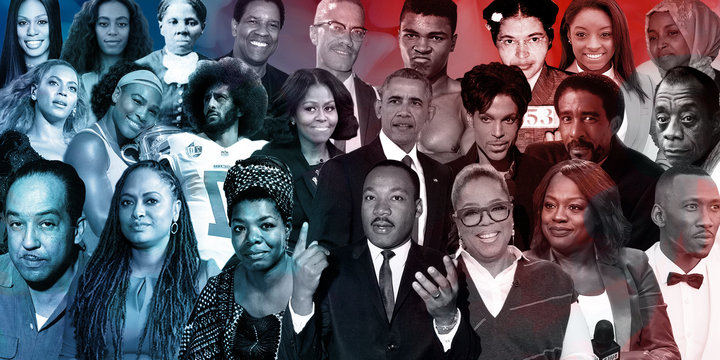Black History month has always been a time of mixed emotions for me. While I greatly appreciate celebrating our heroic trailblazers, I am more consumed with the essence of why Black History is important and the potential of what it has yet to become.
It started as Negro History “Week” in 1926, with the purpose of recognition. It evolved to become a month in 1970 in an era when laws were changed, allowing blacks the right to vote, to gain access to government contracts and even to sit in the same classrooms with white students.
While I appreciate the need to spotlight the black contributions to our history and our culture, for me it falls short. I believe we should celebrate the momentum and accomplishments of America and black heroes throughout the year. In truth, black Americans helped to author our U.S. History along with people of so many other backgrounds who believed in the possibility of togetherness and equality. Without freedom of choice, Black Americans gave much more than they received – the stain of their blood, sweat and tears can be found on our American soil and in the capital growth of our economy. And yet these stories are absent from so many pages of our history books. Standing with allies and empathetic Americans, we can acknowledge the past, even though it’s hard to look at. We can confront the ill effects of racism, which has decreased, but still is not eradicated.
Small acts of intolerance and prejudice exist all around us. Awareness can help bring us all into the light.
I grew up in the suburbs of Chicago. While my youth years were in predominantly black and brown communities, the high schools and college I attended were predominantly white. Throughout my life, including my years in corporate America, there have been many times that I was the only person of color in the room. People occasionally make seemingly innocent remarks out of ignorance about race and culture, not ill intent, but they nonetheless happened. They’d imply that because I didn’t conform to damaging racial stereotypes, I was the exception to the rule, rather than challenging the rule itself. There have been moments when I was treated as the token representative of the entire black community, which would trouble me because I knew that many of my family and friends wouldn’t be nearly as accepted. Those small acts add up. People that they would ignore, I would catch eye contact with and feel the need to bring them into existence. Sometimes I would go out of my way to show that person some love – to prove that I too, still relate. If I didn’t prove my connection, this would cause a bigger issue. The black person would lose faith that I was a true representative, not a token. And I could have lost my passionate purpose: to create access for all people to reach their potential, including people who share the same struggles of being black in America.
Being black is not monolithic experience. There are many shades and nuisances to blackness, there are infinite experiences and points of view. And yet, they are all black experiences. What bonds us is not simply the color of our skin, more importantly it is our appreciation for the gift of struggle. We are united around a search for identify and a constant quest for the American promise of freedom and equality.
The United States of America is the greatest country on earth. Yet, we still too often overlook wounds from the effects of racism, which prevent people and communities from healing.
To take the next step as a united America, one delivering on the foundational belief that everyone deserves an opportunity to succeed, we must be truthful in telling more of the American stories, stories that are inclusive of more diverse experiences. We need the voices of all people who recognize the improbable journey of a people, whose ancestral tradition was deliberately stripped and renamed. To find true and fair progress in our land, we must all dig deeper within to ask the hard questions. How did we get here? What should we unlearn and then relearn? Who is the author of my own belief system? Have I/we done enough to acknowledge and help? Where do we want to go? How will we get there?
In this year of 2019, the story of Black History should be told and experienced at the next level. Not separated or segregated by a month or a section, it should be inclusive to the fabric of our flag and in the mainstream of our American tales without the boundaries of shame. Black History is American History. We must accept our shared American story full of truth, struggle, victory and potential. Statistics prove that not enough has changed to close the racial gap for black Americans on the very important measurements of economics. We aren’t progressing as fast as we could as a country, and we won’t until we move beyond segregated opportunity, and find the cure to move beyond limited understanding so that we can share in the promise of fair opportunity.
America has yet to reach its full potential. My optimistic lens and full heart believe it will, and for that I am excited for all of us to be a part of the story.

Populus Group is proud to be a Certified Minority Owned Business.




 Populus Group
Populus Group Ejay Oravecz
Ejay Oravecz
Leave a comment